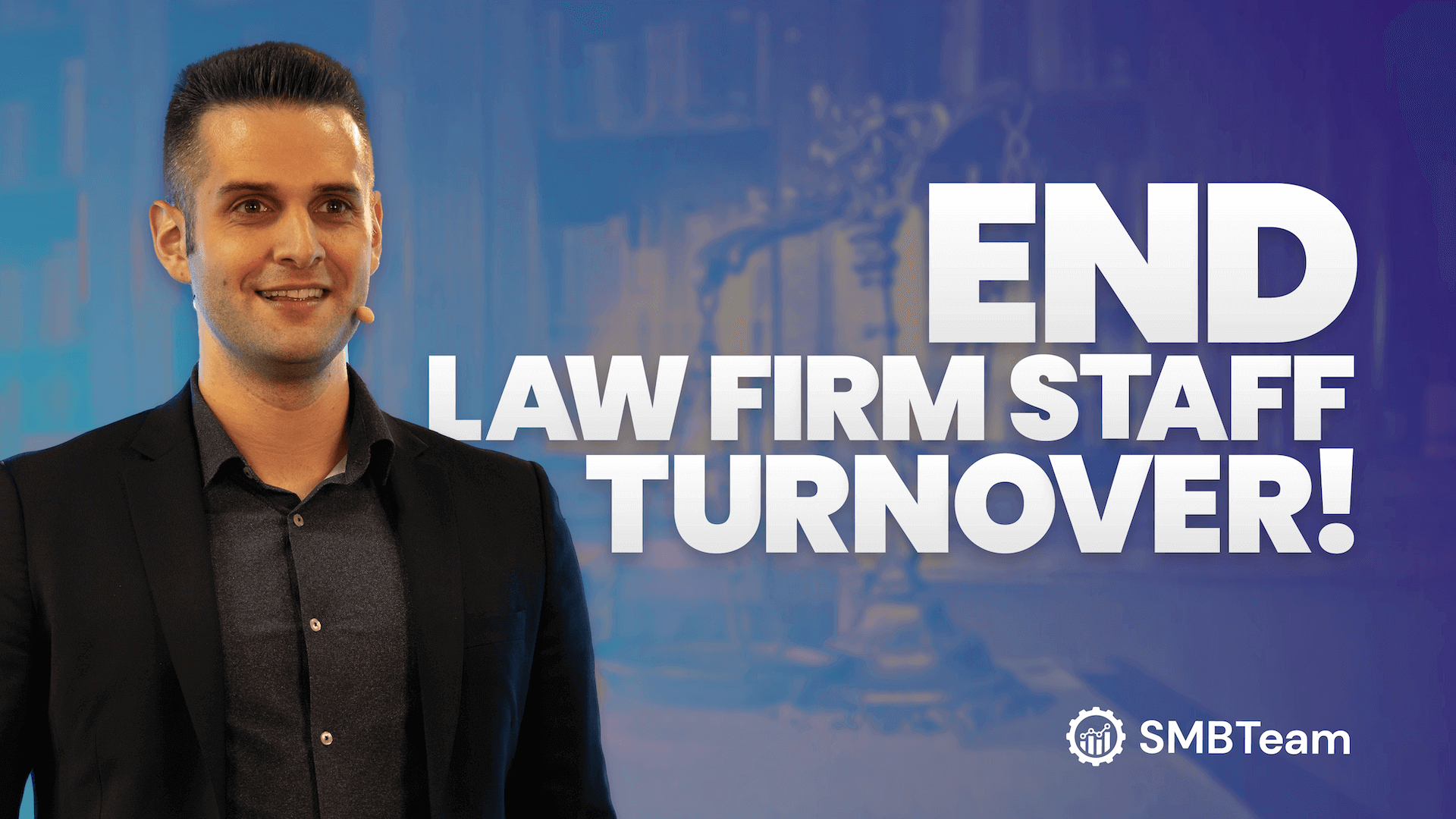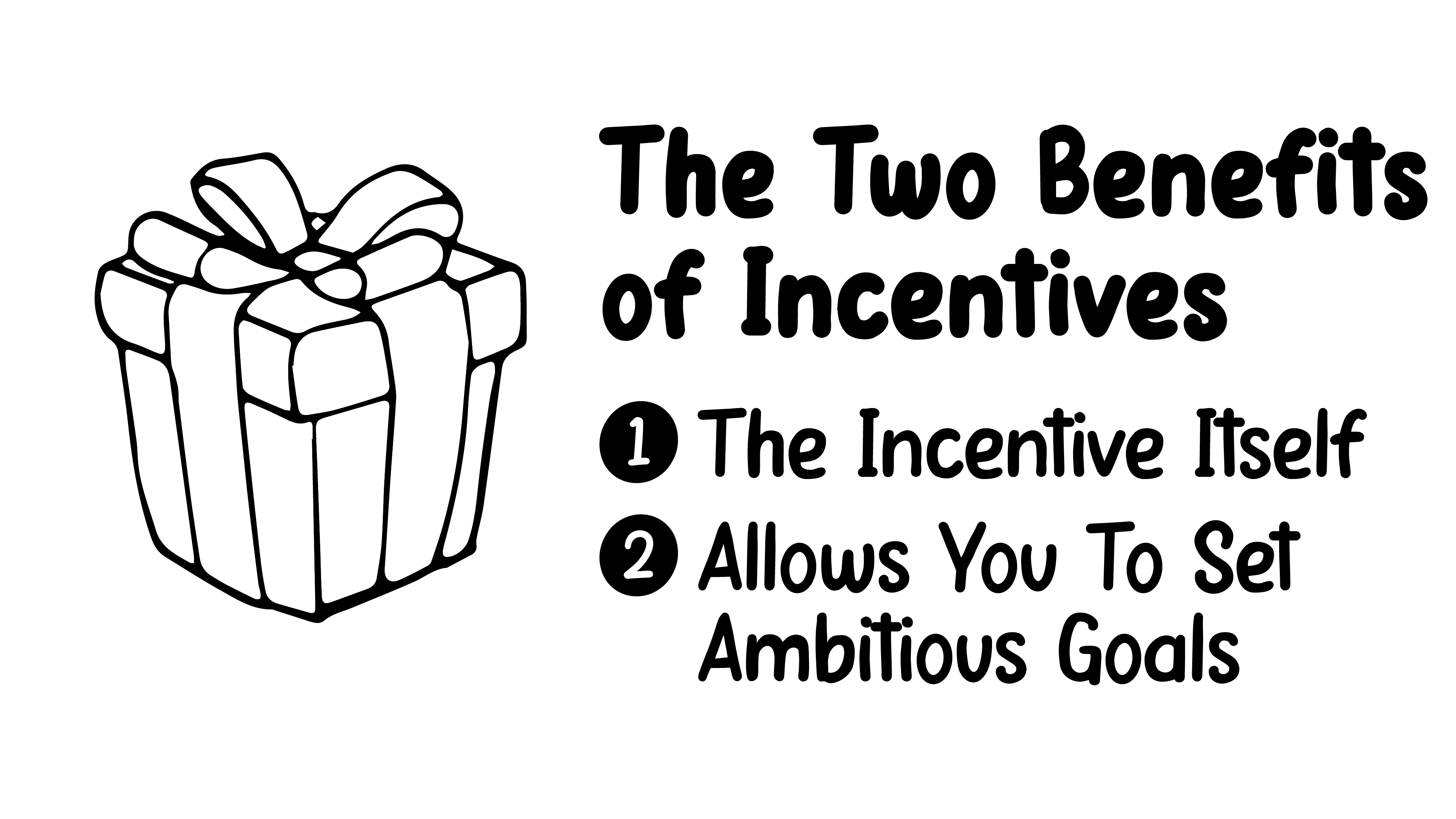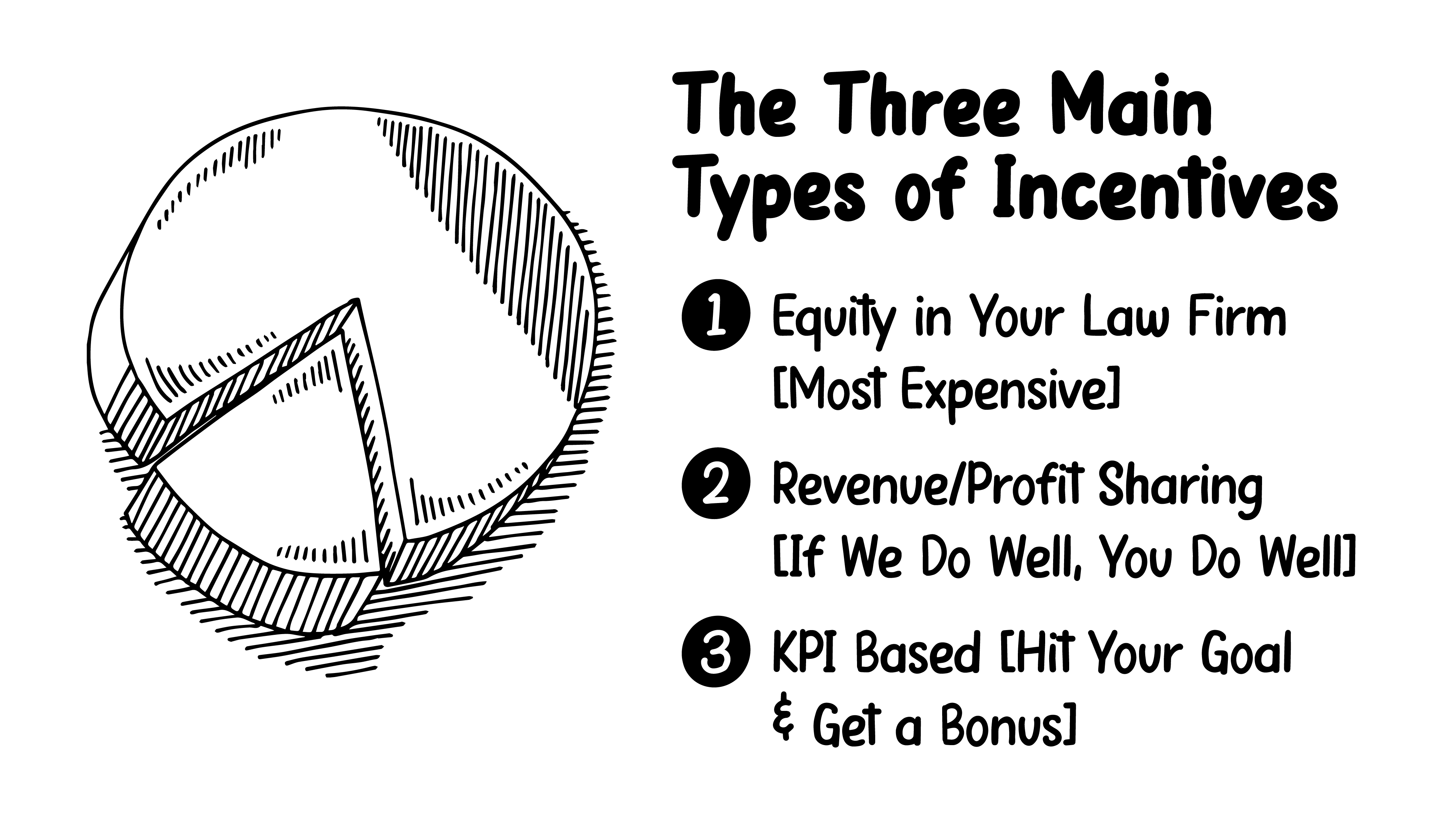
Make Your Staff Fall In Love With Working At Your Law Firm
“I quit.”
Those are the words every law firm owner dreads.
If your goal is to grow your firm’s reputation and revenue, you can’t do it alone. You will need to have talented lawyers, paralegals, and administrative staff to run the daily operations of your firm so you can focus on growth. Effective delegation is essential for sustainable law firm management.
When you lose an employee, you’re not just losing their talent and work ethic. You’re also losing money. It’s expensive to hire a new attorney to replace them, and whether they move on and join another firm in the area or they start their own firm, you’re likely to lose out on some cases to your competition as well.
So, how can you END staff turnover? Here’s how to eliminate “I quit” from your law firm.
Why Do You Lose Great Employees?
People move on from their jobs for all kinds of reasons, but not always for the reasons you might think. Yes, occasionally people move away, switch careers, or quit their jobs due to health or family reasons. Most of the time, though, firms lose great employees because they don’t give them opportunities for growth.
Your firm needs to offer employees the chance to grow in their professional lives. If you do, they will fall in love with working at your firm. If your business doesn’t have the vision and growth to offer the lawyers you hire, you will lose your best talent sooner or later.
Young lawyers are usually ambitious, enthusiastic, and hard-working. If they don’t have an outlet for their talents or any opportunities to grow, they’re not going to feel fulfilled. They won’t stick around for long. Without the right incentives, your firm will always have to deal with employee turnover.
How Can You Keep the Best Talent at Your Firm?
You need to challenge and incentivize your best talent so that they have no reason to move on. To retain high-level team members, you have to offer more than your competition. You have to make working at your firm more appealing than switching firms or even going into independent practice.

Incentives are key for retaining the best talent. There are two main benefits of incentives: the incentives themselves (which are typically financial) and the ability to easily set ambitious goals for your team members. So, how do you use incentives to eliminate “I quit?”
Types of Incentives (Different Levels of Value)
When most people think about incentives, they think about simple bonuses for good work. However, there are other kinds of bonuses, depending on how much value you need to provide to prevent turnover and boost performance. There are several types of incentives you can offer, with different levels of value.

Equity—Ownership in Your Law Firm
The most expensive and valuable incentive you can provide is equity in your law firm. When you give away equity, you’re giving away part ownership in your business.
Obviously, this isn’t something you should be giving out to just anybody on your payroll. Giving away equity is a strategy you can use to lock in a high-level attorney who will continue providing enormous value to your firm. If they’re paying for the equity they’re getting with their contributions, this can be an important long-term investment.
Revenue Sharing/Profit Sharing
The next level down in financial incentives is revenue sharing or profit sharing. Essentially, your team members can earn a portion of your firm’s profits if they are contributing to the revenue growth and productivity of the business.
The logic behind this is simple: if the business does well, the individual does well. This is a great way to increase your firm’s growth while keeping your employees engaged, proactive, and productive.

KPI-Based Bonuses
Bonuses are common in the legal industry, and they can be an important tool for reducing turnover in your firm. KPI (key performance indicator) bonuses are tied to performance. If your employees reach certain performance goals, they will earn a monetary bonus.
KPI-based bonuses can help bring the best out of your staff. However, as they are tied more to individual goals than the firm’s overall success, they are less valuable and powerful than profit-sharing or equity. Long-term, you might need to offer additional incentives to keep your best talent on board.
Other Incentives
Aside from financial incentives, there are other ways to help keep talent at your law firm. Providing opportunities for interesting and fulfilling work is important. If you hire the right people, they will want to be part of something bigger than themselves. They won’t want to just collect a paycheck and go home—they will want to do meaningful, challenging work.
You can also help your firm retain talent by providing professional development opportunities. People want to grow and improve their skills throughout their careers. If you offer lots of opportunities for growth, combined with financial incentives, your employees will have very few reasons to leave your firm.
Create a Goal Attainment Infrastructure for Better Law Firm Management
Once you understand the options for employee incentives, you need to create a goal attainment infrastructure around them. What do your employees need to do if they want to earn different types of incentives? Creating a standardized structure will set clear expectations and make the process fair for everyone.
Think carefully about what’s most important for your firm. How do you want to incentivize people? What are the criteria for the incentives? How can you use them to get your workforce fully engaged in your law firm’s success?
No matter what kind of infrastructure you create for your law firm management strategy, it must be based on this one simple principle: the individual should only win when the company wins. Performance-based bonuses, profit-sharing, equity, and professional development are all tied to a firm’s success. After all, that’s why you need employees in the first place—to grow and run your business.
What Kind of Work Culture Do You Want?
Preventing turnover requires some kind of incentive. Otherwise, your employees will eventually look elsewhere for better pay, better benefits, more interesting work, etc. However, the incentive structure for your law firm will be unique and should reflect your company culture and priorities.
Some companies choose to offer high salaries upfront, without additional bonuses. This is the strategy Netflix uses, and it can be effective. The catch is that if you decide to use this structure for retaining employees and encouraging high performance, you have to be willing to fire people who aren’t living up to expectations. If you don’t, there is no incentive to keep productivity and work quality up.
Another option is a performance-based culture. You offer employees competitive compensation, but not higher than competing firms. Beyond this, they can earn bonuses for going above and beyond. This is the model companies like Nordstrom use, and it can bring out the best in your team—as long as they’re ONLY earning bonuses when their performance exceeds minimum expectations.
Never Let Your Team Stagnate
Your incentive infrastructure must be tied to your employees’ growth and advancement. Don’t give bonuses to employees who are “just doing their jobs.” There’s no benefit to offering participation trophies. Letting your team stagnate will only lead to your law firm stagnating and your revenue flatlining.
Prioritizing growth will help you define your culture and keep your employees engaged. By hiring people who are always trying to improve themselves, you will be able to keep leveling up your business—and help them reach their goals at the same time. When designing an incentive infrastructure, the goal should be a system that creates win-win scenarios, loyalty, and long-term sustainability.
Law office management can be challenging. Many law firm owners struggle to create a culture of growth. Not sure how to create your goal attainment infrastructure and end turnover? SMB Team can help. Book a free law firm management strategy session at www.smbteam.com/apply.